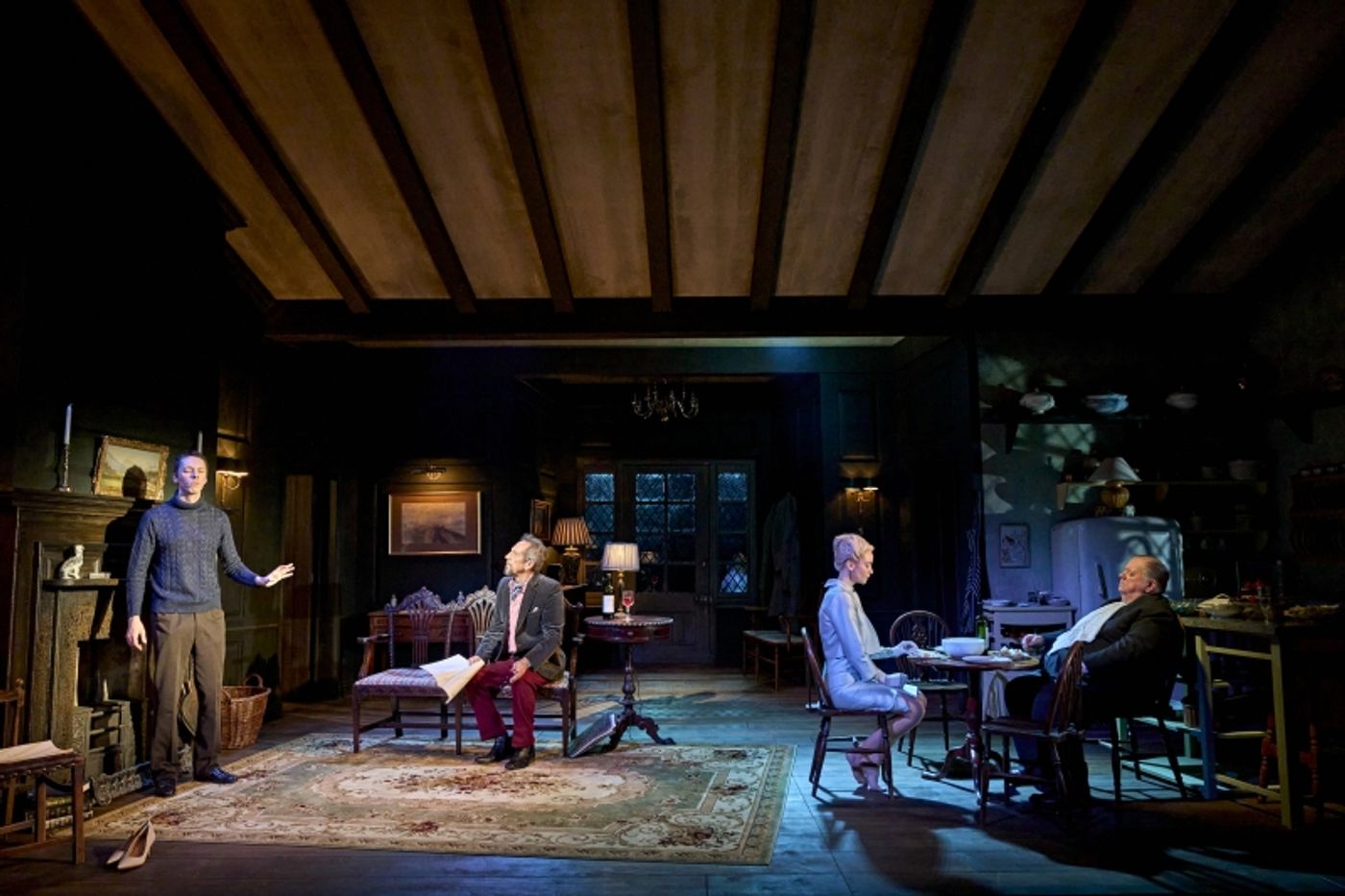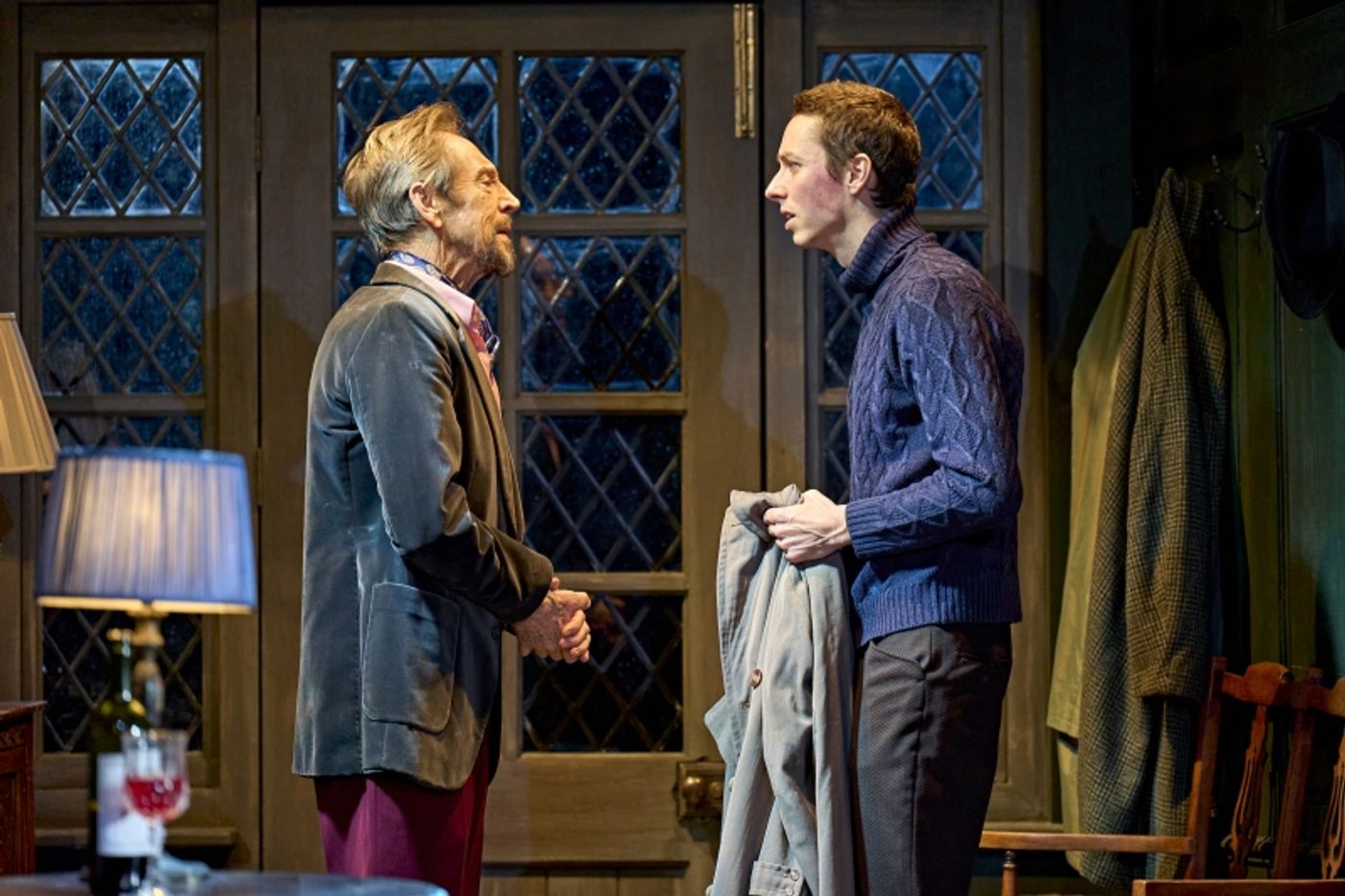Review: DOUBLE FEATURE, Hampstead Theatre
John Logan's new play has its world premiere at the recently defunded theatre.

![]() The glamour of Old Hollywood loses its shine in John Logan’s newest labour of love. Set in the 60s in an industry fuelled by power struggles, his new piece is less epic than its cousin penned by Jack Thorne, The Motive and the Cue, but decisively more nerdy.
The glamour of Old Hollywood loses its shine in John Logan’s newest labour of love. Set in the 60s in an industry fuelled by power struggles, his new piece is less epic than its cousin penned by Jack Thorne, The Motive and the Cue, but decisively more nerdy.
On one side, Alfred Hitchcock regales his muse Tippi Hedren in 1964 Los Angeles; on the other, groundbreaking novice filmmaker Michael Reeves butts heads with seasoned star Vincent Price in 1967 Suffolk. The tribes and tribulations of the sets of Marnie and Witchfinder General have never looked so entertaining. Double Feature is a lavish script matched with a direction that marries the vision flawlessly.
Logan reflects on the fallout of making movies, exploring artistic differences and the compromises that need to happen in order to “create a moment of grace”, as Reeves puts it. Director Jonathan Kent keeps the visuals relatively still, rightfully heightening the beauty of the dialogue, its natural rhythms, the precise twists and halts. The writer stitches the two entirely separate scenes seamlessly, tying them together in the same room with communal props and, at times, the same lines said in unison. The pairs never interact, but Logan’s impressive dramatic links join them at the core.

All the energising semantic sparring and film theory philosophising soar with a watertight cast. While their performances couldn’t be more different, they share a creative intensity worthy of the cinematic élite they portray.
Rowan Polonski brings all the energy of a cocky upstart devoted to his craft but lacking reasonable experience. At the other end of his court, Jonathan Hyde is a withered veteran, a tired and disillusioned actor with a list of commercial fodder he unironically enjoys making behind him. One is consumed by the art he strives to make and prone to sudden outbursts that colour his face a lobster red, the other is a suave gent with an excessive awareness of his position in the industry. They engage in a match of subtle wordplay and delight in elevating Logan’s elegant turns of phrase.
Once their debacle has been introduced, it’s time for another couple of greats to come in. Dressed in an icy blue dress and blond up-do, a string of pearls perfectly arranged around her neck and gloves up to her mid-forearm, Joanna Vanderham starts off as a meek Tippi Hedren. She blooms into a strong woman when Tippi finally has enough and puts “Hitch” in his place with an exciting coup de main that analyses the role of women in Hitchcock's portfolio.
Vanderham’s newfound strength invades the stage with repressed rage while Ian McNeice stands dumbfounded, his previous influence now a weapon used against him. His Hitchcock speaks in film stills when the initially innocuous sleaze he has about him swiftly turns into alarming toxicity. Firm and unmovable in front of Tippi’s reticence to be alone with him and the anxiety she feels every working day, he continuously asserts his intellectual dominance over her.
These two dark sides of the business come together, quite normally, over food. The characters cook and break bread together separately, and such a mundane occurrence infuses with magic under Kent’s watchful eye. It shouldn't really make any sense, but it does. The play is not without humour that peppers the show throughout. Industry people may find plenty of inside jokes, but even the laymen will be thoroughly entertained by perfect comic timing and an exquisite production.

Anthony Ward’s behemoth of a design kicks off with real rain upstage and a realistic feel to every detail. It hides a few surprises up its sleeve too, which is always thrilling to see. The space is lit filmically by Hugh Vanstone, who alternates between naturalistic lighting and more focused lights that divide the scene. It’s a proper feast for theatre aficionados, the dramatically inclined, and the cinephiles. A brilliant watch in the lead-up to the Oscars.
Read our guest blog from Joanna Vanderham on playing Tippi Hedren here.
Double Feature runs at Hampstead Theatre until 16 March.
Photo credit: Manuel Harlan
Reader Reviews
Videos

